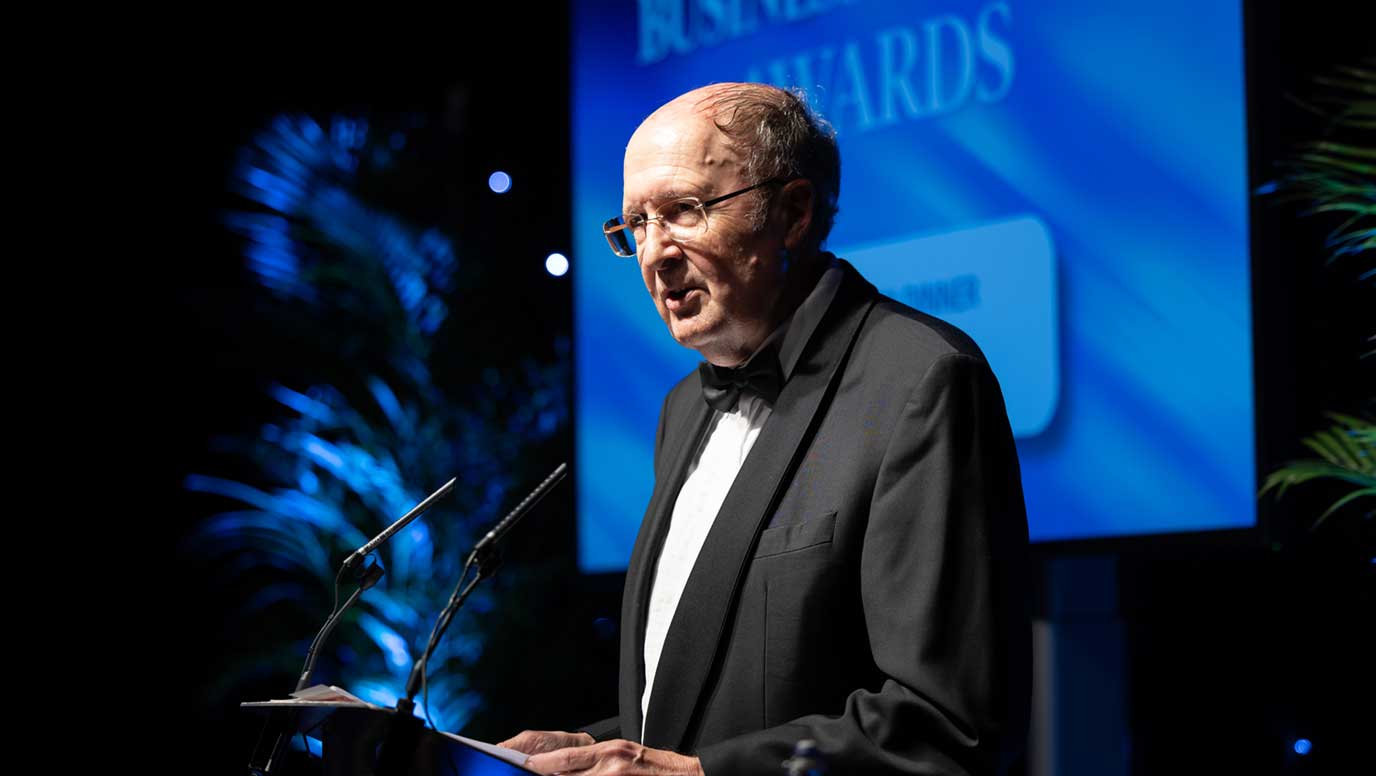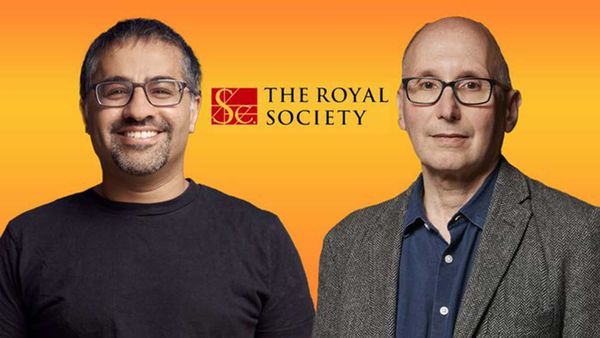In the footsteps of Crick and Einstein: Cambridge science trio win Royal Society awards

The Copley Medal 2024 was awarded to Nobel Laureate Sir Greg Winter for pioneering protein engineering – especially antibody engineering for the successful production of therapeutic antibodies.
The Copley Medal is thought to be the world's oldest scientific prize and it was awarded 170 years before the first Nobel Prize. First awarded in 1731 following donations from Godfrey Copley, it was initially bestowed for the most important scientific discovery or for the greatest contribution made by experiment. Notable winners include Benjamin Franklin, Dorothy Hodgkin, Albert Einstein and Charles Darwin.
Sir Greg is credited with having invented techniques to both humanise (1986) and, later, to fully humanise using phage display, antibodies for therapeutic uses. He was awarded the 2018 Nobel Prize in Chemistry along with George Smith and Frances Arnold.
He is a Fellow of Trinity College, Cambridge and was then appointed Master of Trinity. Sir Greg is a co-founder and board member of Nasdaq-quoted Bicycle Therapeutics which is growing fast on both sides of the Atlantic.

Professors Stratton and Behjati were recognised for their outstanding contributions to cancer research. Sir Mike received the Royal Medal (Biological) for his foundational work in cancer genomics while Professor Behjati won the Francis Crick Medal and Lecture for his discoveries on the developmental origins of childhood cancers.
Sir Mike Stratton is currently a senior group leader and formerly Director of the Wellcome Sanger Institute. He is also Mutographs team lead at Cancer Grand Challenges. He has been awarded the Royal Medal for his transformative work in cancer genomics, including the discovery of cancer-causing genes and the identification of mutational signatures that have revolutionised understanding of cancer.
Mike established the Cancer Genome Project in 2000 to use the newly sequenced human genome as a template on which to systematically sequence cancer genomes.
This work led to the discovery of mutated cancer genes, such as BRAF, on the basis of which novel targeted cancer therapies were developed, and to uncovering the mutational signatures of the environmental exposures and endogenous mutational processes that cause cancer in the first place.
His research also includes the discovery of the breast cancer susceptibility gene, BRCA2, and the sequencing of the first complete cancer genome.
He said: “I am extremely honoured and humbled to be considered amongst the amazing scientists who have previously been awarded the Royal Medal by the Royal Society, and wish to voice my gratitude to those who nominated me and decided on the award.
“The news of the Award immediately brought into my head the assembly of faces and voices of colleagues I’ve had in over 40 years in scientific research; PhD students, Postdoctoral Fellows, Staff Scientists, team members in or out of the laboratory supporting the whole enterprise, senior colleagues with whom big ideas have been shared, chewed over and acted on, and those who have advised, mentored and supported me.
“I am deeply grateful for the multitude of conversations we have had together, the furrowed brows at difficult junctures, the sparkling eyes at moments of epiphany, and the profound, generally unspoken, collective commitment to the extraordinary work of the human imagination that is the pursuit of knowledge about the natural world and its capability to bring benefits and hope to people with cancer.”
Professor Behjati is Clinical Professor of Paediatric Oncology at the University of Cambridge and practising consultant at Addenbrooke’s Hospital. He has been awarded with the Francis Crick Medal and invited to deliver the associated Lecture for his fundamental discoveries on the developmental origins of childhood cancers.
Sam’s research combines single-cell transcriptomics and cancer genomics to unravel the identity and origin of cancer cells, specifically childhood cancer, with the aim of improving diagnostics and treatments.
In his clinical research role, he ensures that every child with a solid tumour in his region receives whole-genome sequencing, which allows for more precise diagnoses and targeted therapies.
A Wellcome Senior Research Fellow at Sanger, he said: “I am humbled and grateful to be awarded this prize by the Royal Society. I am very fortunate to have been supervised by two masters of the trade, Mike Stratton and Peter Campbell.
“I would not be where I am today without their teaching and support. I now have a team of inventive, driven and kind people from different corners of the world, all united by a love of collaborative discovery science. It is a delight to see our group’s basic research into childhood cancer genetics recognised as worthy of this honour.”


